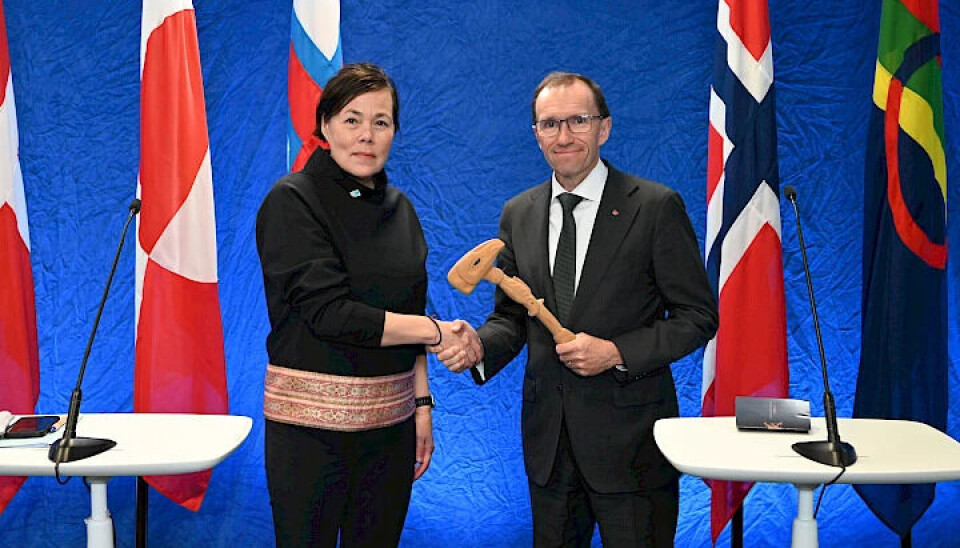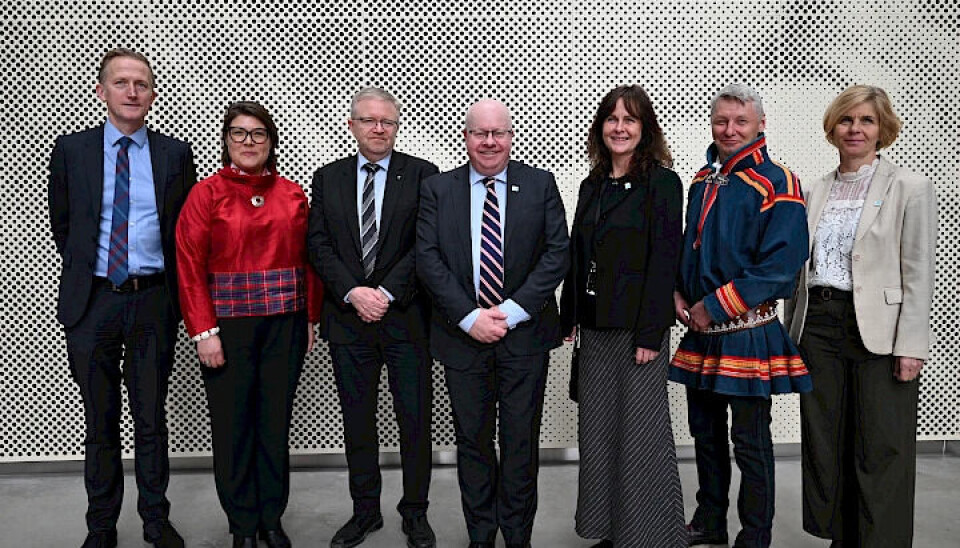
Denmark takes over rotating Arctic Council chairship from Norway
Denmark took over the Arctic Council’s two-year rotating chairmanship from Norway on Monday, pledging to work to keep the North “a region of stability and constructive cooperation.”
“In a world facing complex and difficult circumstances, the Arctic Council must rise to the moment by showing that, even now, through cooperation and dialogue we can live up to a higher responsibility,” Vivian Motzfeldt, Greenland’s Minister of Foreign Affairs and Research, said at a streamed news conference after the handover.
“We must move forward together with courage, openness and a deep commitment to peace and partnership.”
The Kingdom of Denmark—which includes the Faroe Islands and Greenland—assumes the chairmanship at a time when U.S. President Donald Trump continues to advocate for American control of Greenland on security grounds.
Responding to questions during a Q&A session, Motzfeldt downplayed any tensions with Washington, stating that when it comes to security, both Nuuk and Washington are aligned.
“We have been very clear in our politics that we don’t want to be Danes, but we don’t want to be Americans either,” she said.
“Our cooperation with the new administration is very strong. We show unity, but we also know we have a responsibility for security. Our message has been very clear, the security of the United States is also our security and a security for Europe.”
Tense years at forum since Ukraine invasion
The Arctic Council is an international forum for the eight Arctic nations and six Arctic Indigenous groups and focuses on emergency preparedness, environment and sustainable development in the North. Military and defence issues have been excluded from the forum since its founding.
The chairmanships rotate between the countries every two years.
The tension between Copenhagen, Nuuk and Washington over Trump’s comments is the most recent strain on the forum after Russia’s 2022 invasion which led to a pause and ongoing disruptions to the body’s work as the seven western Arctic nations cut ties and communication with Moscow.
Although some of the expert groups resumed work in 2024, the council’s cooperation remains limited.
Motzfeldt said the Norwegian chairmanship had shepherded the forum through a challenging period and that the Kingdom of Denmark would continue to build on this progress.
“The world need good stories and everybody has a responsibility to build up on peace and cooperation,” she said.

During its chairmanship, the Kingdom of Denmark has set out five major priorities to guide its work in the Arctic, including amplifying Indigenous voices and knowledge in decision-making, particularly on health, mental health, youth involvement, and gender equality.
They’ve also pledged to support growth that benefits Arctic communities—particularly through clean energy initiatives and by empowering Indigenous leadership.
The Kingdom also highlights the need for better monitoring and international cooperation to safeguard the oceans, alongside efforts to combat the impacts of climate change on local communities, including reducing black carbon and methane emissions.
Biodiversity is another priority, with plans to protect Arctic wildlife and ecosystems from the growing threats of pollution and invasive species.
------------------------
This story is posted on the Barents Observer as part of Eye on the Arctic, a collaborative partnership between public and private circumpolar media organisations.














